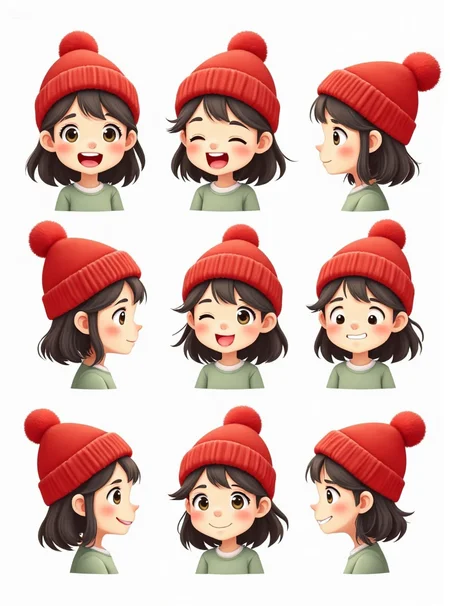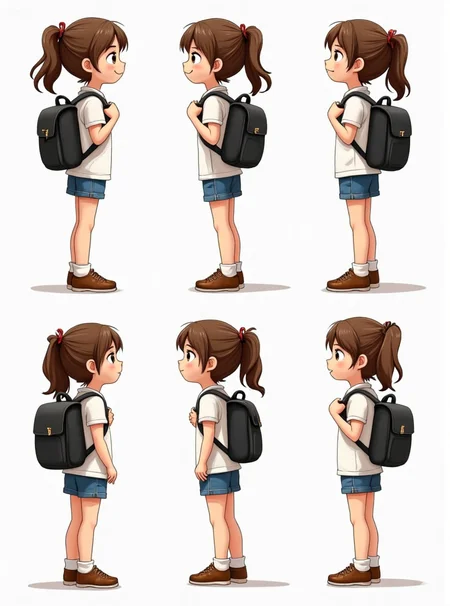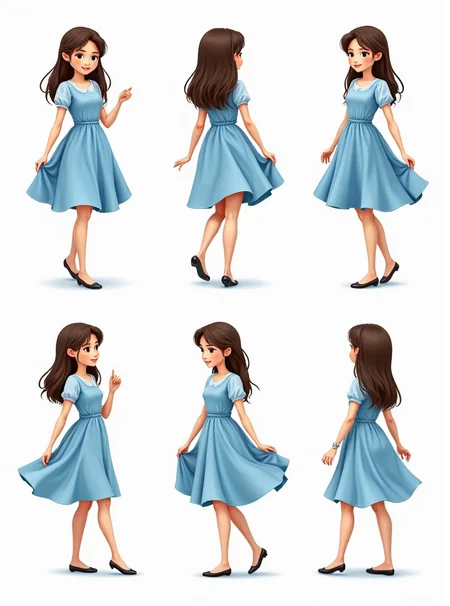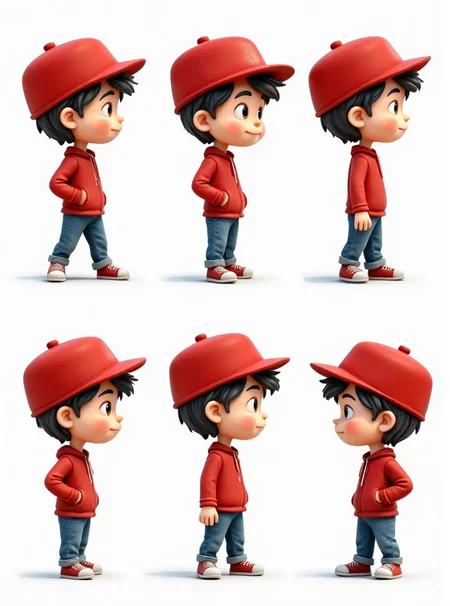Multiple human poses refer to an expressive technique in visual creation (such as painting, illustration, design, film and television storyboards, etc.) that showcases rich dynamics and emotional states by designing different body movements, postures, and facial expressions for characters. Its core is to break away from single static presentation, making character images more vivid and three-dimensional, and conveying more accurate information or emotions.
Its design dimensions include body movements (basic postures like standing, walking, jumping, and bending over, or detailed actions such as waving, resting cheeks on hands, and making fists), body angles (changes in front, side, back, and tilted angles), and emotion correlation (e.g., relaxed postures when smiling, tense postures when angry, and huddled postures when pondering). In application scenarios, it is commonly used in character design (to demonstrate a character’s personality and identity), picture book creation (to advance the story plot), advertising posters (to convey product tone, such as dynamic poses for sports brands), and UI design (e.g., interactive poses of emojis and virtual avatars).
Through the design of multiple human poses, not only can the sense of movement and narrative of the picture be enhanced, but also the audience can more intuitively perceive the inner state of the characters, improving the appeal and sense of engagement of the work.



